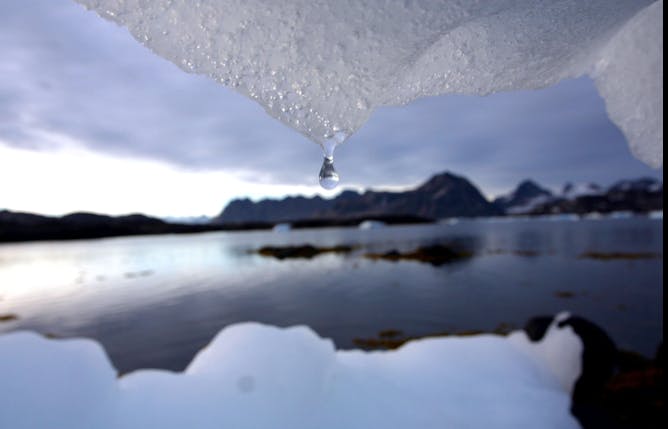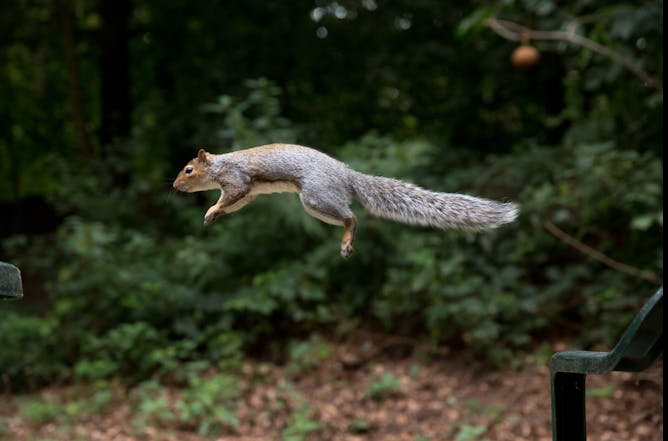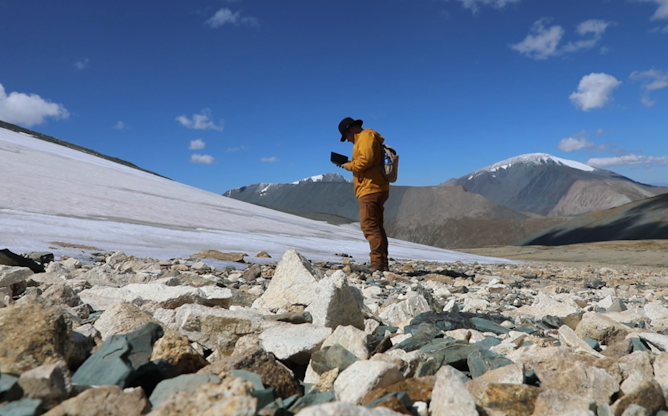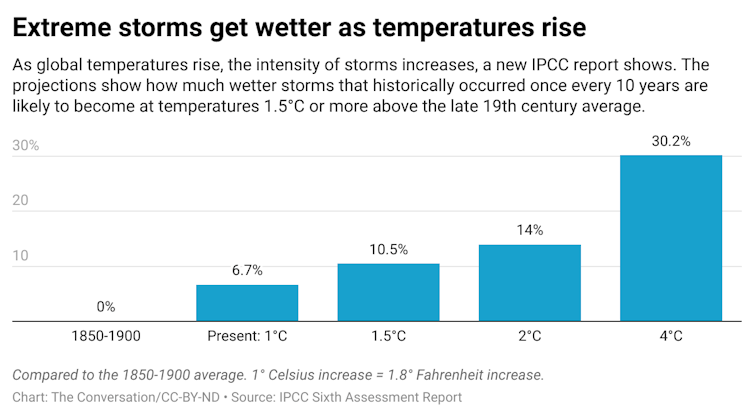|
|
|
|
Looking back at the past week, it’s blindingly obvious what the biggest story in science and society in general was: the release on Monday of a major report from the Intergovernmental Panel on Climate Change. My colleague Stacy Morford has been taking the lead on our coverage, which included two stories this week – one on how the world’s oceans and ice are changing and a second on what the planet’s intensifying
water cycle means. For a deep dive on the report, see this collection of stories written by scientists in the U.S., Europe and Australia.
For science journalists, stories about animals are among the most fun – and a story on squirrels from this past week certainly hit the mark on that score. The article describes experiments done on the campus of the University of California, Berkeley, that reveal insights into the rodents’ decision-making and highly developed skills moving through the tree canopy. The researchers hope results from their latest study can inform robot engineering: “At present, there is no robot as agile as a squirrel, and none that can learn or make decisions about dynamic tasks in complex environments – but our research suggests the kinds of abilities that such
robots would need,” they write.
A story published today is a reminder of just how widespread, and perhaps surprising, the effects of climate change will be. University of Colorado Boulder archaeologist William Taylor writes about his work in Mongolia, where he and colleagues are trying to find ancient human artifacts along the edges of glaciers and other accumulations of snow and ice. As these patches melt, he writes, “small groups of archaeologists are scrambling to cobble together the funding and staffing needed to identify, recover and study these objects before they are gone.”
Also this week:
If there is a subject you’d like our team of science editors to investigate, please reply to this email.
|
Martin La Monica
Director of Editorial Projects and Newsletters
|

|
|

What might seem like small changes, like a degree of warming, can have big consequences.
AP Photo/John McConnico
Robert Kopp, Rutgers University
Some of the climate changes will be irreversible for millennia. But some can be slowed and even stopped if countries quickly reduce their greenhouse gas emissions, including from burning fossil fuels.
|

How do they stick their landings?
Alex Turton via Getty Images
Lucia F. Jacobs, University of California, Berkeley; Nathaniel Hunt, University of Nebraska Omaha; Robert J. Full, University of California, Berkeley
How do squirrels leap through trees without falling? It takes strength, flexibility and finely tuned cognitive skills.
|

Archaeologist and paleoenvironmental researcher Isaac Hart of the University of Utah surveys a melting ice patch in western Mongolia.
Peter Bittner
William Taylor, University of Colorado Boulder
From the high Yukon to the mountains of Central Asia, melting ice exposes fragile ancient artifacts that tell the story of the past – and provide hints about how to respond to a changing climate.
|
Other good finds
|
-
Marc Zimmer, Connecticut College
Three pioneering technologies have forever altered how researchers do their work and promise to revolutionize medicine, from correcting genetic disorders to treating degenerative brain diseases.
-
Bart Johnson, University of Oregon; David Hulse, University of Florida
Hundreds of computer simulations point to a few best strategies for keeping homes safe from fire in a warming climate.
-
Arturo Ramírez-Valdez, University of California San Diego
The giant sea bass fishery collapsed long ago in the US, but that didn’t mean the species was endangered. New research shows these iconic fish have been thriving south of the border.
-
Shang Gao, University of Illinois at Chicago; Jalees Rehman, University of Illinois at Chicago
Machine learning is great at finding patterns but doesn’t know what those patterns mean. Combine it with knowledge gained from genetic research and you have a powerful view into the workings of cells.
-
Kristen Eller, University of Colorado Boulder
Antibiotic resistance is one of the biggest public health threats in the world. New research, however, may have found a way to keep up with rapidly evolving bacteria.
-
Lilly Cheng Immergluck, Morehouse School of Medicine
New variants of the COVID-19 virus may be more contagious and cause more severe disease than the original. A pediatrician and infectious disease specialist explains why.
-
Michael Pearce, University of Washington; Adrian Raftery, University of Washington
Jeanne Calment of France died in 1997 at the age of 122 years and 164 days. That record will be broken this century, statistical models suggest.
Today’s graphic

|
|
| |
| |
| |
| |

|
| |
| |
| |
| |
| |
| |
| |
| |
|
|
|
|
|
|
|